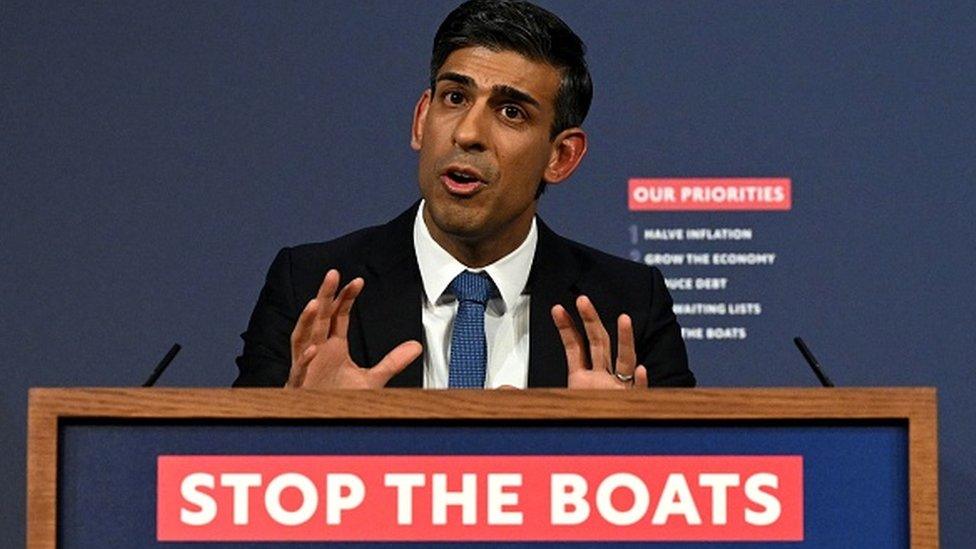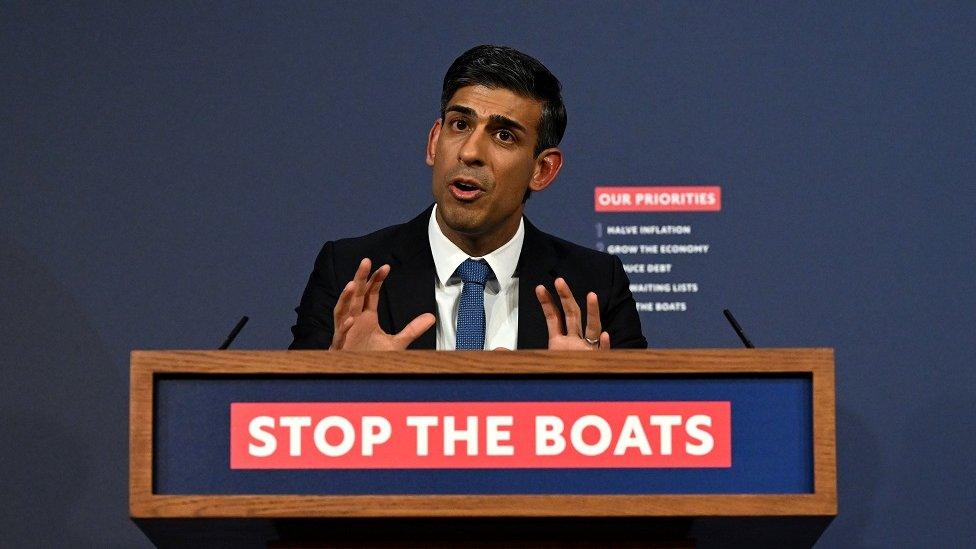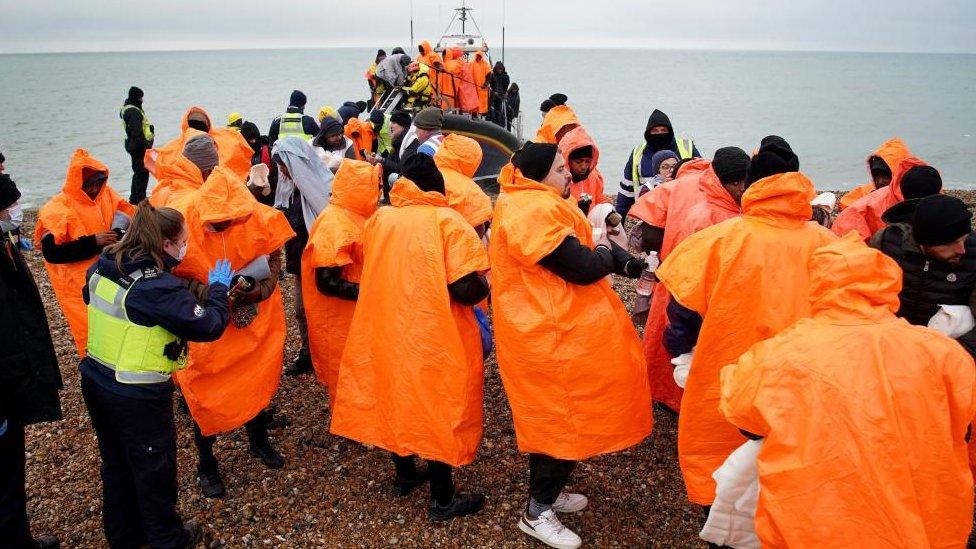Migration bill: Home secretary set to win powers to ignore European court
- Published

Prime Minister Rishi Sunak has made curbing illegal migration one of his main priorities
The home secretary is expected to be given the ability to ignore attempts by European judges to halt migrant deportations from the UK.
The change will be made to the Illegal Migration Bill, after the government made concessions to Conservative MPs.
The move should avoid a rebellion from some MPs, who have been demanding tougher action against the European Court of Human Rights (ECHR).
The change will be made in amendments when the bill returns to the Commons.
As part of the amendment, Home Secretary Suella Braverman is expected to gain the power, in certain circumstances, to ignore interim injunctions from the court, known as Rule 39 orders, that halt deportation flights.
The Strasbourg-based court, unpopular with the Tory right, used an injunction of this type to block the removal of migrants to Rwanda last year.
Rebel Tory MPs say they have also agreed with ministers that British judges will only be able to halt deportations where there is a risk of serious and irreversible harm.
BBC Newsnight has been told some movement is also expected on the provision of safe and legal routes for refugees to come to the UK - which is a key demand of another group of Conservative MPs.
The migration legislation, which was set out by Ms Braverman last month, would prevent anyone entering the UK illegally from claiming asylum.
It is central to Mr Sunak's pledge to stop small boats crossing the English Channel, but has provoked outrage among charities and opposition parties, who say it breaches international law.
Some Conservative MPs, however, believe it does not go far enough and tabled a series of changes to the bill.
Last month, some of those MPs withdrew their proposals in Parliament after immigration minister Robert Jenrick said he would engage with those who have concerns.
Conservative MP Danny Kruger, who was among those leading the calls, said he was "grateful to the prime minister and the home secretary for their work".
Mr Kruger said the British public "are fed up with London lawyers and Strasbourg judges getting in the way of a sensible migration policy".
He said he was "hopeful that the government will be able to deliver the prompt removals to Rwanda and other safe countries". This was needed, he said, "to stop the boats and lay the foundation of a fair and humane asylum system".
New powers
More than 45,000 people entered the UK via Channel crossings last year, up from about 300 in 2018.
Under the new bill, people removed from the UK would be blocked from returning or seeking British citizenship in future. Migrants will not get bail or be able to seek judicial review for the first 28 days of detention.
It will also place a legal duty on the home secretary to detain and remove those arriving in the UK illegally, to Rwanda or a "safe" third country - this will take legal precedence over someone's right to claim asylum.
In a letter to MPs following publication of the bill, Ms Braverman conceded there is a "more (than) 50% chance" the bill is incompatible with international law.
It is expected to come up against opposition in the House of Lords, and subsequently expected to face a wave of legal challenges, whilst opposition parties have dismissed it as unworkable.
Former Lord Chief Justice and crossbench peer Lord Thomas said ignoring interim injunctions from the ECHR would be an "immensely serious step" and warned it "sets an extraordinarily bad example".
"Many people would say having the power to ignore a court order is something - unless the circumstances were quite extraordinary - this is a step a government should never take because it is symbolic of a breach of the rule of law," he told BBC Radio 4's Today programme.
Related topics
- Published27 March 2023

- Published9 March 2023

- Published7 March 2023
